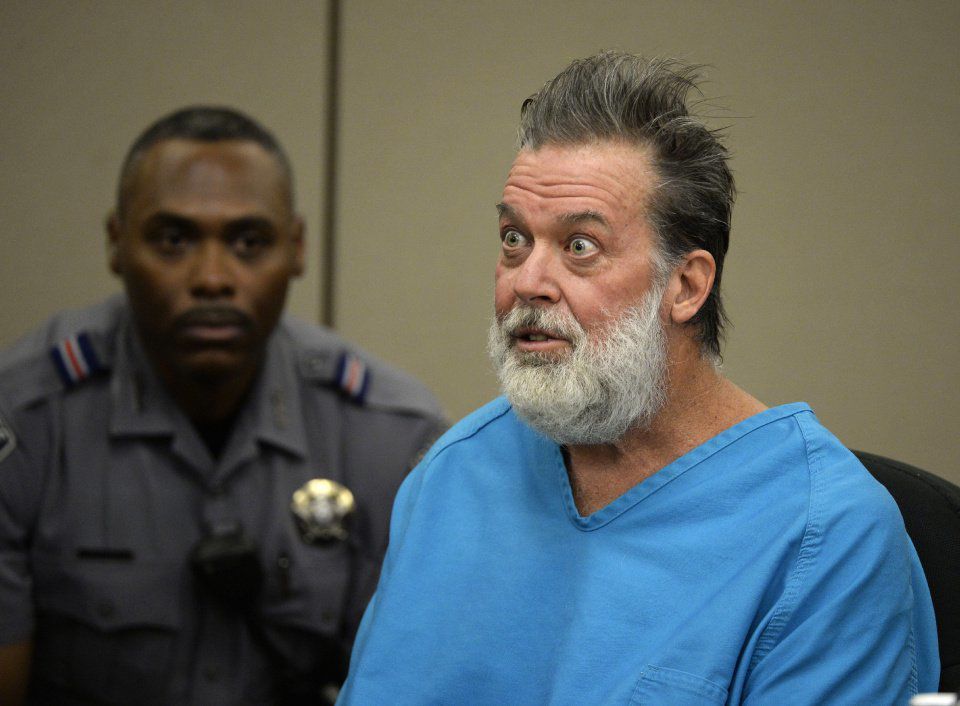Colorado justices skeptical of unfairness allegations against Black Hills’ winter storm surcharge
Members of the Colorado Supreme Court on Wednesday appeared unmoved by claims that the Public Utilities Commission’s authorized method of charging customers for $23 million in natural gas purchases during a winter storm was unreasonable.
In advance of Winter Storm Uri in February 2021, Black Hills Energy bought additional gas to ensure continued service to its customers. Afterward, the commission signed off on a proposal for Black Hills to recover its costs by imposing a flat surcharge on its customers’ future energy use, spread out over two years.
One of Black Hills’ major customers, industrial materials producer Holcim, protested the plan. The company argued the fair method was to charge users based on the electricity they actually consumed during the storm. Under that methodology, Holcim asserted its true share of the gas purchase should be under $600,000, compared to roughly $2 million using the commission-approved plan.
During oral arguments, however, the justices appeared sympathetic that the flat rate was a reasonable approach for Black Hills to take.
“They bought the gas in advance. Somebody has to pay for it. Why is it inappropriate for them to take a two-year period of time and base it on your usage in that period just like it’s based on everybody else’s usage?” Justice Richard L. Gabriel asked Holcim’s attorney. “Is it not true that, in general, not even dealing with a storm, the utility will purchase the gas in advance and charge over a future period of time?”
Assistant Attorney General Alex J. Acerra, representing the Public Utilities Commission, pointed out the disconnect between Holcim’s belief that its bill should be based on its actual energy use during the winter storm and the reality that Holcim benefitted from Black Hills’ systemwide preparedness.
“The utility used those forecasts to ensure it had enough fuel to generate enough electricity over the winter storm weekend so that all of its customers, including Holcim, could have used their normal amount of electricity during the storm,” he said.
Although Holcim chose not to run its plant at full capacity in that period “Holcim’s argument is now, ‘Despite the fact that we’ve received that benefit — we have this option that we didn’t exercise — now we don’t want to have to pay the full cost’,” Acerra added.
Holcim took no issue with Black Hills recovering its $23 million gas purchase from customers over two years, which was intended to avoid “rate shock.” Instead, the company insisted the surcharge was unreasonable because it was untethered to customers’ actual electricity use during the winter storm.
According to Holcim’s calculations, the plan required it to pay 360% more than it should, with residential customers receiving a windfall.

FILE PHOTO: A maintenance worker plows the inner road of Washington Park in Denver as a late winter storm packing hurricane-force winds and snow sweeps over the intermountain West.
After the Public Utilities Commission sided against Holcim, Denver District Court Judge Andrew J. Luxen upheld that decision, finding a surcharge imposed equally on all customers was not arbitrary.
On appeal to the Supreme Court, Holcim argued it was “frustrating” to see its position characterized as “some haphazard selfish endeavor.”
“How much electricity you use is directly relevant to what you pay towards that cost,” said attorney Mark T. Valentine. “In this case, there’s no correlation between what Holcim used” and its surcharge over the next two years.
Justice Maria E. Berkenkotter acknowledged that some of Black Hills’ customers, like farmers who use electricity for irrigation, also would be disadvantaged by having to pay for others’ gas use during a winter storm.
“It may be unfair to them, but the argument is if you look across the entire system, everyone is using it. It’s splitting the cost. Some people are always gonna pay more, some will always pay less,” she said.

FILE PHOTO: Justice Maria E. Berkenkotter listens during oral arguments at the Colorado Supreme Court’s “Courts in the Community” event on May 9, 2024 at Central High School in Pueblo. (Photo by Jerilee Bennett, The Gazette)
On the flip side, Gabriel asked the Public Utilities Commission’s attorney why the cost recovery mechanism can ignore customers’ actual electricity usage during the storm.
“Why is it fair to charge people in the future for an extraordinary event without considering the extraordinary event?” he wondered.
Acerra responded that Holcim’s decreased energy usage would have been reflected in its bill at the time. But if the company had wanted to use more, Black Hills’ gas purchase made that possible.
“That’s part of the benefit that Holcim and all other customers got,” he said. “It’s that they could have done it.”
The case is Holcim U.S. Inc. v. Colorado Public Utilities Commission et al.

















